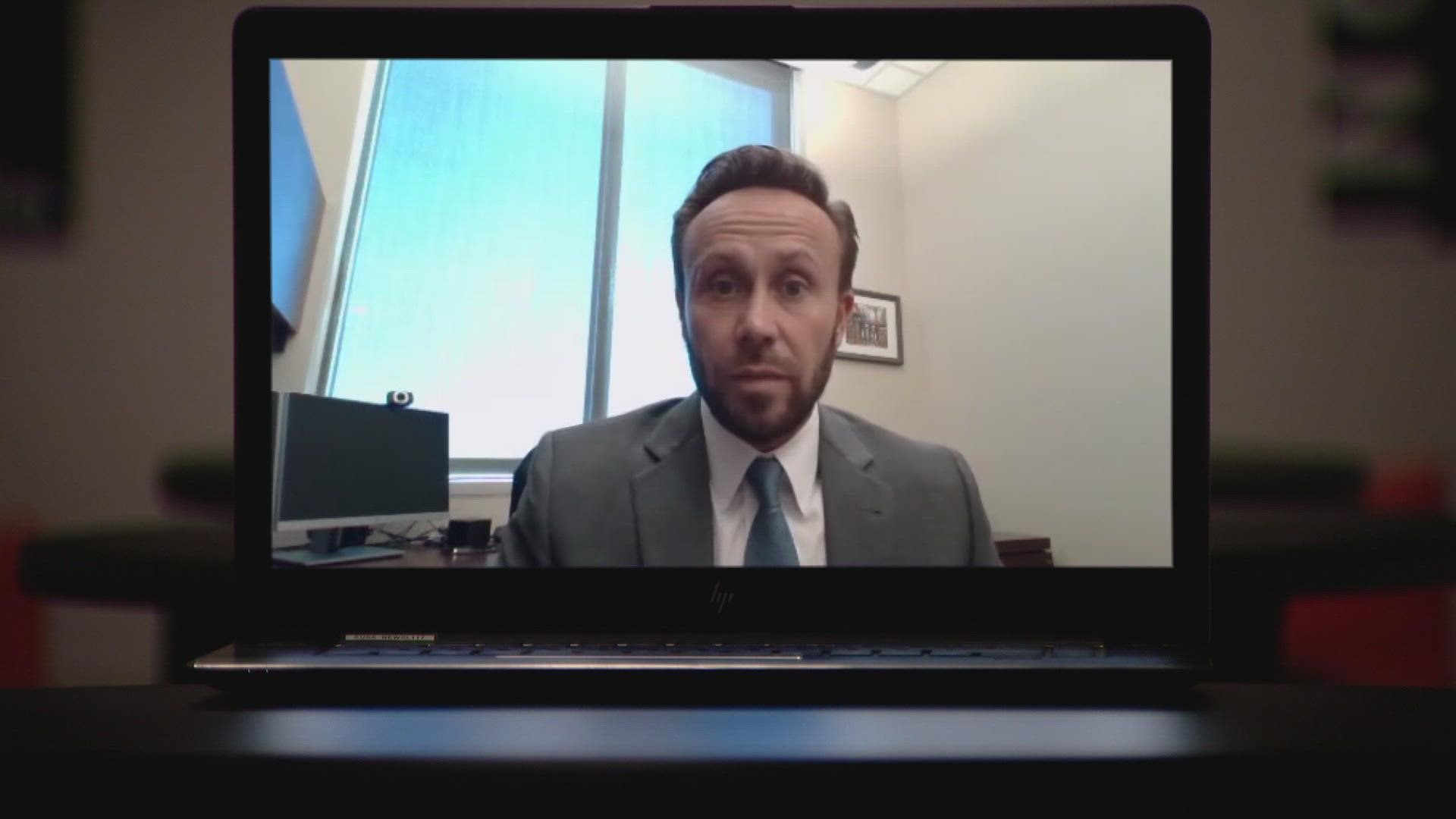AURORA, Colo. — The City of Aurora is moving to change the way it funds its crisis response team after 9NEWS learned last week that there are currently zero full-time clinicians available to respond to mental health emergencies.
One of the main problems that led to all clinicians leaving the program was centered around pay. Now the city council is moving away from funding the program through grants.
Aurora’s crisis response team sends a clinician alongside a police officer to 911 emergencies involving mental health crises. The only problem is, as of right now there are no full-time clinicians working with the program able to respond to emergencies.
"It’s unacceptable that it’s at zero," said Dustin Zvonek, a member of Aurora City Council. "It’s too critical of a part for me of law enforcement and public safety to not have those clinicians in place."
This weekend the full council met for its annual budget workshop. Both conservatives like Zvonek and liberals on the council agreed funding the crisis response team through grants is not working.
"We had a conversation about the need to move away from grant funding for the crisis response team, specifically the clinicians that are a part of those teams, and move them to become a regular line item in our general fund," said Zvonek.
The program hasn’t been fully staffed since it started in 2017. Now Zvonek said there is near unanimous support on the city council to fund the program using city funds instead of the grant money that required clinicians to be paid very little.
"What we saw over time is that we were actually having fewer and not more clinicians. So we started asking questions. What we learned is that this grant funding program and level of pay this grant allowed for was prohibitive for us bringing more clinicians onto the team," said Zvonek.
9NEWS reached out to every member of Aurora City Council to see which members support funding the crisis response team through the city budget. Of the seven members we heard back from, all supported using general funds to ensure they can hire more clinicians and can pay them more money. Those responses came from both conservatives and liberals on the council.
"We have been able to limp along, but we certainly aren’t running with the impact we could be having in this city. It’s time for a change in terms of how we think of funding this," said Kelly Phillips-Henry, CEO of Aurora Mental Health Center.
Aurora Mental Health Center provides the clinicians for the co-responder programs in Aurora and helped launch the team. As the city moves away from the grant funding, the said she recently found out Aurora will be contracting with someone else to provide clinicians. Because their contract isn’t up until the end of the year, the city could be without clinicians for the crisis response team for months.
"We hold this contract with them until Dec. 31. Unfortunately, we will not be able to recruit for these positions knowing that the contract is about to change hands," said Phillips-Henry. "We are working with the department to figure out how best we can support during this interim time."
With a program lacking any staffing, there’s now support to change that.
"We desperately need to have more clinicians as part of this team," said Zvonek.
SUGGESTED VIDEOS: Mental Health & Wellness

